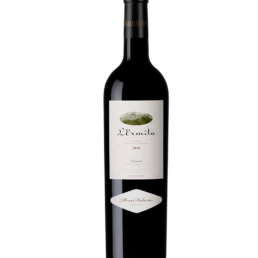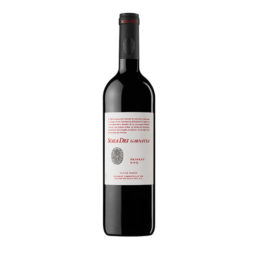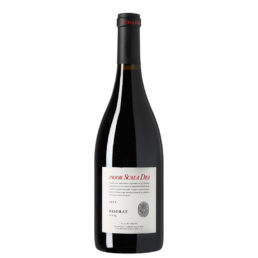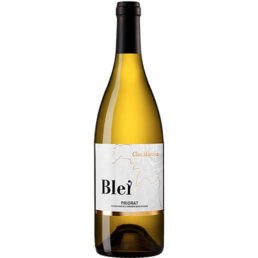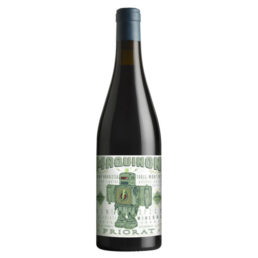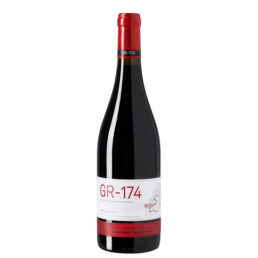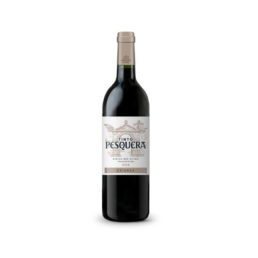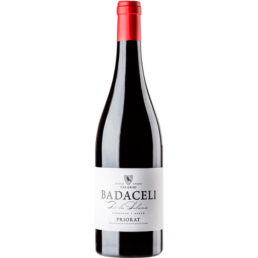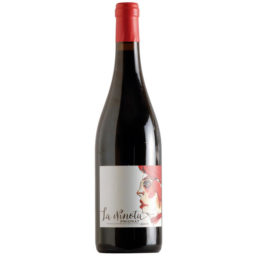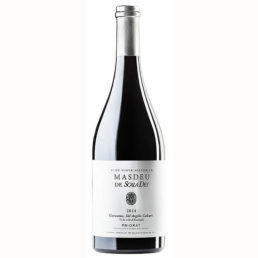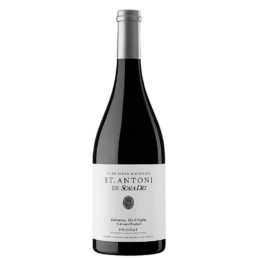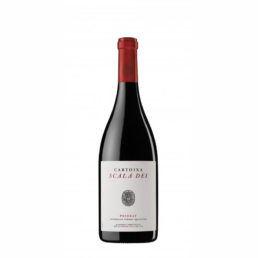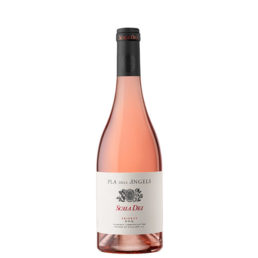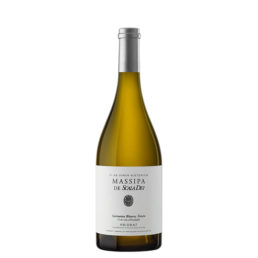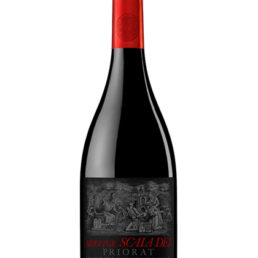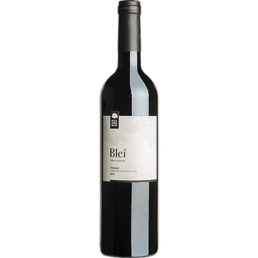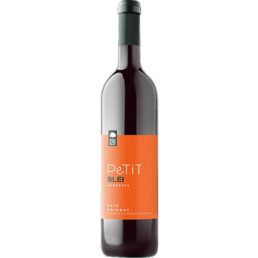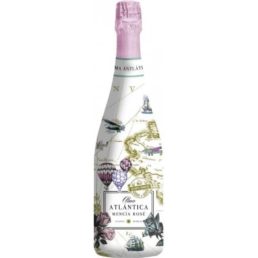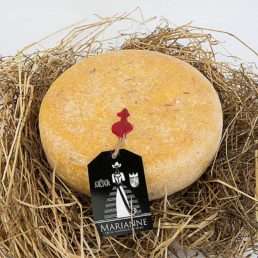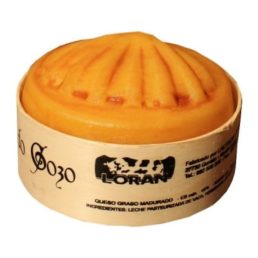VINIFICATION Pre-maceration in cold during 24 hours. Pressing to racking to a tub where it is kept other 24h. Fermentation in new French oak barrels (Q. Petrea) of 300 liters, fine grain and medium toast light. Parenting 6 months with lees and "battonage" journal. Stabilization in cold, the natural way (seasonal), not induced. Bottled: 1 year in the bottle.
AWARDS GOLD medal INTERNATIONAL WINE CHALLENGE 2016.O.D.. Priorat
Showing all 19 resultsSorted by latest
-
Álvaro Palacios Wine L’Ermita 2014 – 2015
Álvaro Palacios L'Ermita 2014 , red wine made by Alvaro Palacios from the Priorat area (Spain)Rated with the mythical 100 Parker points in the vintage 20013, L'Ermita is one of the great oenological jewels of the Spanish scene with which Álvaro Palacios has managed to be at the top in terms of recognition.. -
Red wine, Scala Dei Garnatxa
Vineyards planted on terraces and the typical "Costers" slate of Priorat, between the ages of 15 and 25 years located in altitudes ranging from 500 until the 800 meters above sea level.DEVELOPMENT (VINIFICATION)The development of the Grenache Scala Dei is done in small open vessels, by groupage of grapes homogeneously mature. Once the fermentation and using wine-tasting decides the moment of pressing. Once developed, the wine remains 6 to 8 months in stainless steel tanks until its bottling.VINEYARD (VITICULTURE)This red wine is nourished mainly from the following vineyards: Maset, Stop, Closos, Escorial and Forsans, the D. O. Q. Priorat. Specifically, we look for grapes with a high acidity, a concentration of fresh fruit without sobremaduraciones tannin and a live but mature. It is a wine based on the Grenache. This wine aims to basically three things: freshness, fruit and simplicity. -
Scala Dei Prior Magnum tinted wine
Scala Dei Prior is a wine with personality, that breathes tradition and authenticity, since that allows to know better the richness of the D. O. Q. Priorat. It is elaborated with grapes from different small plots, carefully selected. This care durantand all the processing result to a Crianza wine is well structured and full of aromas that will transport you to the vineyards of the Priorat.DEVELOPMENT (VINIFICATION)After defining the vineyards that are going to go for this wine, the grapes previously selected in the estates arrive at the winery in small boxes 16 kg, where all the grapes is reviewed thoroughly by the warehouse staff as they pass through the selection table, vibratory installed at the entrance of the winery. After de-stemming and crushing, fermented at controlled temperature to preserve the aromas of ripe fruit. Later, the breeding takes place in barrels (French oak 80% and american 20%) during a year. This type of ageing is completed in bottle for more than a year for the wine to reach the market in optimal time of consumption.VINEYARD (VITICULTURE)Grapes from varieties of historical of the area and of the vineyards older (between 35 and 60 years old), planted on the terraces and in the typical “costers” licorella from Priorat. The terrain, the driving of the plants and above all, the desire to obtain the best grapes, makes the grape harvest is done manually only. The vineyards are situated between the 500 and the 800 meters of altitude, which favours the maturation is slow and regular and enables a variety of shades to combine heights and different orientations of the vineyards. All this makes this wine unique.AWARDS94 POINTS GUÍA GOURMETS 201890 POINTS GUIDE PEÑÍN 2018GOLD MEDAL MUNDUS VINI - 201890 POINTS ROBERT PARKER 2018GOLD MEDAL EXPOVINA - 2017SILVER MEDAL BACCHUS - 2017 -
White wine Mas d'en Blei – Clos Martina Magnum
PRODUCTION 4.000 bottles.VITICULTURE Grapes are produced only of the finca Mas d'en Blei. Vineyards on terraces of slate (licorella). Vintage hand. Selection in table. Development separated by varieties. -
Red Red Wine House – Maquinon
The strength of the Priory in a wine and a grape, Black Garnacha, transmitting a piece of this land, clearly defined by its terroir: the blackboard (llicorella).From vineyards over 10 years old, located in different terraces. Limited production 18.000 thousand bottles. -
Vino tinto Tinto GR-174
Description of Red Wine Red GR-174
It is the expression of farms. In it involved the two terroirs, one (Casa Gran) bringing much freshness and red fruits and the other (La inviolability) with minerality, structure and black fruit.It is made with all grape varieties from the two farms: Grenache, Cabernet Sauvignon, Samsó, Syrah, Merlot and Cabernet Franc. -
Pesquera Crianza Tinto
Tinto Pesquera it is one of the wines more highly acclaimed within and outside of our borders. When the critic Robert Parker compared Tinto Pesquera 1982 with the extraordinary Pétrus (one of the most expensive wines and precious in the world), the doors of the most demanding markets were opened to this tag.Fishing is a must on the wine list of any restaurant with character. The great 'Ribera del Duero', after Vega Sicilia. A wine created by Alejandro Fernandez at the end of the seventies that changed the history of Ribera del Duero. Pesquera style marked the path that others would follow elaborate and success forced the government to recognize the Ribera del Duero designation of origin.The wines of 'Fishing' are produced always from whole fruit, despalillados. The fermentation, temperature-controlled, lasts between two and three weeks. After pressed, and without clarifying, the wine passed directly to an intelligent and subtle combination of oak barrels american and French with various toast. There will be based, between the frequent racking, during 18 months, the 'Reds Fishing' and not less than 24 months 'Reserves' and 'Large Reserves'. -
Vino tinto Cal Grau - Badaceli
The Badacelli is a red wine of sober and noble that collects naturally all the essence of the Priorat. After a decanting highly recommended, the garnacha and cariñena together maturity and freshness to enjoy with a red wine of profound and complex that shows one of the faces most elegant Priorat current, the one without renouncing their origins know how to adapt to the new times. -
Red wine Cal Grau – The Ninota
The Ninota Vins is the new project of Company Vineyards Iberian in Catalonia. The Ninota arises from the concern to produce wines of reduced production where the common denominator is house the different appellations of origin of Catalonia: Priorat, Montsant, Terra Alta, Penedés. We talk about wines that are a true reflection of their soils, environments and weather, putting flag a great respect for the variety.Each wine will have your style and personality, offering a great added value. Fran Vernet, winemaker Cal Grau, is the culprit of ensuring that each wine has its own style and a own personality well defined, offering a huge value added very personal.One of the successes of Vernet and the Osborne family it is The Ninota 2015. Belonging to the D. O. Q. Priorat, whose grapes main are the garnacha and cariñena, that dwell in soils on mountain of slate and licorella, with a small contribution of syrah grapes.Vinification and ageing: 4 months in barrel. -
Red wine Masdeu Scala Dei
Masdeu is a red wine from a single vineyard, one of the oldest wine from Scala Dei already working as the carthusian monks. In its production, has recovered the way you work and the ancient techniques of winemaking that had desaparecidor in Priorat, as the fermentation and refining in fats and deposits of cement. With this Book we intend to show the different faces of Grenache Scala Dei, depending on your height, soil and preparation.DEVELOPMENT (VINIFICATION)With this wine we wanted to recover a heritage of development that existed in Priorat and that takes us up to the first bottled wines of Cellers Scala Dei. So,having investigated as those bottles of the years 70 had been developed, we have vinified the Masdeu. Vintage during the third week of October, in small boxes, with the 100% from the stems in the fermentation, but with the grape pressed (not whole). Fermented in a small tank of cement 3.500 liters, imitating the peak temperature of the fermentations of the last century, without added yeast, and pressing at the own tank of cement.Foster: the 55% the wine was for 16 months in deposit of cement, the 25% wine 16 months in foudre of 1.400 liters, the 15% in the barrel of 600 litres during also 16 months and the rest in a jar buried in a wooden crate with clay during 16 months.VINEYARD (VITICULTURE)Masdeu is a vineyard terraced situated on the slopes of the Montsant, in the D. O. Q. Priorat. Is the vineyard Cellers Scala Dei has more height, comes around 800 meters at its tallest terrace. The soil is red clay in its lower part, to go to increasing the content of the limy as we are coming to the last terrace where is a floor of stones completely.. Orientation South-East, and planted during the TWENTIETH century, in 1945. It is one of the vineyards that the monks had planted Grenache from centuries ago.The add 2013 it was “the vintage“, the vintage wine preceded by a cold winter, spring, generous rainfall, cool summer at the beginning and then warm but not hot, late harvest and lack of rain during harvest, did that the maturation slow and regular,resulting in wines with body, fruit and fresh at the same time. The only but is that it was a short crop for the Grenache, because the curd was not very good.AWARDS95 POINTS GUIDE PEÑÍN 201894 POINTS WINE SPECTATOR 201790 POINTS GUIDE PROENSA 201795 POINTS ROBERT PARKER 201693 POINTS YEARBOOK OF WINES (THE COUNTRY) 20189,81 POINTS GUIA DE VINS DE CATALUNYA 2017 -
Red wine St. Antoni d Scala Dei
Scala Dei St. Antoni is a wine of a single vineyard, one of the oldest wine from Scala Dei, already working as the carthusian monks. With him we have recovered a heritage of development that had disappeared in Priorat, and that is in preparedar wine as it was produced during the years 70 or above. With this Book we aim to show the different faces of Grenache Scala Dei, depending on your height, soil and preparation.DEVELOPMENT (VINIFICATION)With this wine we wanted to recover a heritage of development that existed in Priorat and that takes us up to the first bottled wines of Cellers Scala Dei. So, having investigated as those bottles of the years 70 had been developed, we have vinified the St. Antoni. Harvest during the first week of October, in small boxes, with the 100% from the stems in the fermentation, but with the grape pressed (not whole). Fermented in a small tank of cement 3.500 liters, imitating the peak temperature of the fermentations of the last century, without added yeast, and pressing at the own tank of cement.Foster: 14 months in “foudre” 1.400 litres not new.VINEYARD (VITICULTURE)Sant Antoni de Montalt is a vineyard located above the Cartoixa Scala Dei, in a small flat terraced facade that ends at an impressive cliff on the Monastery, of ground clay, it has the shape of an amphitheater with a party-oriented This, the other on the West and the central part, facing South, is 580 meters in its lowest part, and 610 meters at its highest part, in the D. O. Q. Priorat. It is one of the vineyards that the monks had planted Grenache as five centuries ago; the plants that we see today were planted in 1945 and we can find at least two types of Grenache: Hairy and Country.The add 2013 it was “the vintage“, the vintage wine preceded by a cold winter, spring, generous rainfall, cool summer at the beginning and then warm but not hot, late harvest and lack of rain during harvest, did that the maturation slow and regular, resulting in wines with body, fruit and fresh at the same time. The only but, it was a short crop for the Grenache, because the curd was not very good.AWARDS95 POINTS GUIDE PEÑÍN 201795 POINTS ROBERT PARKER 201691 POINTS YEARBOOK OF WINES (THE COUNTRY) 20189,77 POINTS GUIA DE VINS DE CATALUNYA 201795 POINTS GUIDE PEÑÍN 201893 POINTS GUIDE PROENSA 201790 POINTS TASTING ANDREAS LARSSON 2017 -
Red wine, Scala Dei Cartoixa
This author's wine is call Cartoixa gives an account of the continuity of the link with the vineyards who looked after the monks in the Middle Ages. Because Scala Dei Cartoixa is not only the wine more emblematic of the cellars of Scala Dei; it is also a milestone in the history of wine of the Priorat to have been the first wine to be bottled under the D. O. C. Priorat. This Crianza red is made with a selection of the best grapes native to the area: Garnacha and Cariñena.DEVELOPMENT (VINIFICATION)This wine was elaborated from selected grapes of the best plots of the D. O. Q. Priorat. Each parcel was fermented separately. The maceration lasted about 3 weeks depending on the variety and the grape to achieve a wine with the typicity of each of the vineyards.Parenting 18 months in foudres of 1.400 liters, bocois of 500 liters and deposits of cement 2.100 liters.By having different origins of Garnachas, different heights and different soils, these need a different treatment for your foster, because each vineyard is aged separately in which we believe that is the best measure for expressing your terroir.VINEYARD (VITICULTURE)Grapes from varieties of historical of the area, the Garnacha and Cariñena, and from old vines of around 60 years old, planted on the terraces and in the typical “costers” llicorella of the Priorat. The terrain, the driving of the plants and, above all, the desire to obtain the best grapes, makes the grape harvest is done manually only. The vineyards are situated between the 500 and the 800 meters of altitude. Each year we choose those who have given the best grapes to ferment separately, pampering the extraction, taking care of the expression of the fruit and taking each step during their preparation to maintain the expression of the quality that had the grape at the time of collection.AWARDS94 POINTS TASTING.COM (JERALD O KENNARD) 2017 -
Rosé wine, Scala Dei – Pla dels Àngels
Another of the faces of Grenache. Pla dels Angels is the first pink of Cellers Scala Dei, prepared by their winemaker, Ricard Rofes, which has managed to develop this fragrant, fresh and delicate rosé wine from a selection of grapes from dand vineyards high on clay soils. Has been selected as one of the 10 best rosé of the world 2015 “The Global Rosé Masters”, competition organized by the prestigious magazine Drink Business.DEVELOPMENT (VINIFICATION)To preserve the aromatic characteristics of the Garnacha, it cools the grapes on their arrival warehouse up to the 2 ºC, is despalilla, and after 3 hours of maceration with skins starts bleeding in deposit to get this pale color and attractive. Subsequently desfanga and it is the fermentation as if it were a white wine. After the fermentation is in tank for about 4 months, until comes the time of bottling.VINEYARD (VITICULTURE)Grapes from the high areas of Scala Dei, the D. O. Q. Priorat, on soils argilosos that retain the acidity and, therefore the freshness of the grapes at the time of the grape harvest. Vineyards young and old, predominantly orientations north and east, located between the 500 and the 600 meters of height.AWARDS91 POINTS YEARBOOK OF WINES (THE COUNTRY) 201890 POINTS GUIDE PEÑÍN 201890 POINTS GUIDE 365 DAYS (LIVE THE WINE) 2018 -
White wine, Scala Dei Massipa
Massipa is the reissue of one of the wines from the cellar that had been developed in the past with the name of “White Scala Dei”. With this wine, want to show the fresh face of the Garnacha Blanca in the Priory in conjunction with the low Chenin blanc. Comes from a single vineyard historical, The Massipa, planted with white varieties. A white sleek and subtle that has demonstrated a good capacity for ageing.DEVELOPMENT (VINIFICATION)We harvested the Grenache and Chenin: the Grenache is at the point of maturation that we consider it appropriate to, and the Chenin helps us to maintain the acidity. Already in the cellar, are pressed together, the two varietals, is desfanga the wort and is transferred to a concrete tank where fermentará at a controlled temperature of 16-18 ° C with indigenous yeasts. Once finished the fermentation, is transferred to remove the lees thick, and subtract just fine. During the first two months of ageing is done a battonage per week and remains in the deposit; from the two months starts static ageing with lees on the bottom of the foudre.VINEYARD (VITICULTURE)This is a wine of a single vineyard, The Massipa, located just to the side of the vine of Masdeu, with east orientation, to 650 meters of height and clayey soil red with inlays of gypsum. The vineyard has 45 years and is the only one with white grapes of Cellers Scala Dei. A road divided the vineyard in half: to one side there is the White Grenache and the other of the Chenin, planted by the Sr. Peyra at the end of the 80 with the arrival of varietal French at the Priorat.AWARDS93 POINTS ROBERT PARKER 201890 POINTS YEARBOOK OF WINES (THE COUNTRY) 2018 -
Red wine, Scala Dei Prior
Scala Dei Prior is a wine with personality, that breathes tradition and authenticity, since that allows to know better the richness of the D. O. Q. Priorat. It is elaborated with grapes from different small plots, carefully selected. This care durantand all the processing result to a Crianza wine is well structured and full of aromas that will transport you to the vineyards of the Priorat.DEVELOPMENT (VINIFICATION)After defining the vineyards that are going to go for this wine, the grapes previously selected in the estates arrive at the winery in small boxes 16 kg, where all the grapes is reviewed thoroughly by the warehouse staff as they pass through the selection table, vibratory installed at the entrance of the winery. After de-stemming and crushing, fermented at controlled temperature to preserve the aromas of ripe fruit. Later, the breeding takes place in barrels (French oak 80% and american 20%) during a year. This type of ageing is completed in bottle for more than a year for the wine to reach the market in optimal time of consumption.VINEYARD (VITICULTURE)Grapes from varieties of historical of the area and of the vineyards older (between 35 and 60 years old), planted on the terraces and in the typical “costers” licorella from Priorat. The terrain, the driving of the plants and above all, the desire to obtain the best grapes, makes the grape harvest is done manually only. The vineyards are situated between the 500 and the 800 meters of altitude, which favours the maturation is slow and regular and enables a variety of shades to combine heights and different orientations of the vineyards. All this makes this wine unique.AWARDS94 POINTS GUÍA GOURMETS 201890 POINTS GUIDE PEÑÍN 2018GOLD MEDAL MUNDUS VINI - 201890 POINTS ROBERT PARKER 2018GOLD MEDAL EXPOVINA - 2017SILVER MEDAL BACCHUS - 2017 -
Scala Dei Heretge red wine
Heretge is a monovarietal from Cariñena that breaks with it "dogma" followed so far by Cellers Scala Dei, where Garnacha has always been the hallmark. This is, well, a transgressive bet, a "heresy" and a tribute to ancestral viticulturetral of the area. This limited edition of about 3.000 Bottles have been made by hand with grapes from vines of more than 80 three years old "costers" different: Towards the Sierra, Parts of Ase y La Font, thus faithfully reflecting the typicality and unique character of the area.Wine making is similar to what we do in Cellers Scala Dei with our Grenache from historic vineyards. Basically the idea is not to intervene so that what the wine shows is the peculiarity of the terroir that marks so much the slate wines of Priorat. So, fermentation took place in open cement tanks, alternating punching and pumping over depending on the daily tasting. Fermented with a 30% of the scrape, the one that corresponds to one of the three "costers", where we get to harvest with a mature stalk. He was 22 days in contact with the skins from vatting to pressing. Fermentation takes place with native yeasts. -
Red wine Mas d'en Blei – Liber
PRODUCTION limited to 2.500 bottles.VITICULTURE Grapes of coastal llicorella of the finca Mas d'en Blei, with south-west orientation. Controls are carried out for maturation to proceed to the harvest in its optimal point, that is done manually in boxes of 10kg. After a first manual selection, is desraspa and performs a second selection grain by grain. The complete formulation up to the coupage is performed by separating varieties and plots.VINIFICATION At the entrance in the cellar is done in a pre-maceration pre-cool the grapes during 24 hours. Long fermentation of 20 to 24 days with “pegeage” manual journal, using indigenous yeasts. Parenting 14 months in French oak barrels (Q. Petrea) of 225 liters, fine grain and medium toast-light. Maintained a minimum of 18 months in the bottle to get a good point of maturity. It is a wine with a character of breeding, due to its complexity. This is a wine technician who resists a lot of time in the bottle and can be consumed in excellent condition in the following 5 years old.
ACKNOWLEDGEMENTS
Medal of SILVER in DECANTER World Wine Awards 2015.
93 points Peñin Guide 2017
-
Red wine Mas d'en Blei – Petit Blei
PRODUCTION Limited to 6.000 bottles.VITICULTURE Grapes coming from the vineyards in coastal licorella of the finca Mas d'en Blei with orientation to the south-west. Controls are performed of ripening before the harvest to achieve your optimum point. The harvest is performed manualment in boxes 10-15 kg. After the first selection, drift, and makes a second selection grain by grain. Development separated by variedadeVINIFICATION Wine with its own style elaborated with autochthonous varieties.Pre-maceration in cold of the grapes during 24h. Long fermentation, of 20 to 24 days, with indigenous yeasts and “pegeage” manual journal. Parenting 6 months in French oak barrels (Q. Petrea) of 225 liters, fine grain and medium toast light.
-
White wine Mas d'en Blei – Clos Martina
PRODUCTION 4.000 bottles.VITICULTURE Grapes are produced only of the finca Mas d'en Blei. Vineyards on terraces of slate (licorella). Vintage hand. Selection in table. Development separated by varieties.VINIFICATION Pre-maceration in cold during 24 hours. Pressing to racking to a tub where it is kept other 24h. Fermentation in new French oak barrels (Q. Petrea) of 300 liters, fine grain and medium toast light. Parenting 6 months with lees and "battonage" journal. Stabilization in cold, the natural way (seasonal), not induced. Bottled: 1 year in the bottle.
AWARDS GOLD medal INTERNATIONAL WINE CHALLENGE 2016.












